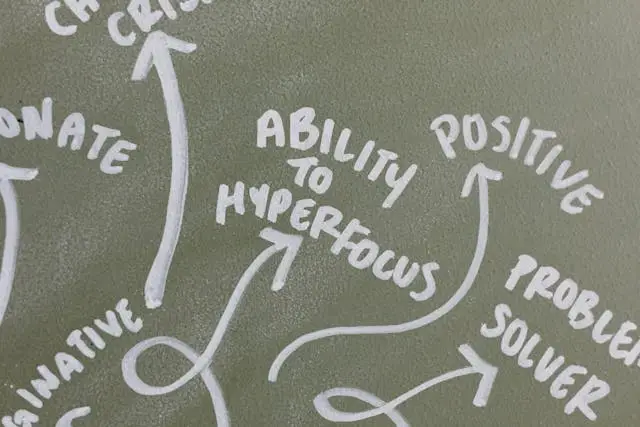
Combating Impostor Syndrome: Strategies for 40+ Professionals to Feel They Belong in the Tech World
Photo By RDNE Stock project.
In today’s rapidly evolving tech landscape, impostor syndrome can strike anyone, but it often hits experienced professionals over 40 with particular intensity. This persistent feeling of inadequacy, despite evident success and qualifications, can sabotage careers and undermine wellbeing. For seasoned professionals transitioning into tech or struggling to stay relevant in an industry that sometimes glorifies youth, impostor syndrome becomes an additional hurdle in an already challenging journey. This article offers comprehensive strategies to recognize, address, and ultimately overcome impostor syndrome, helping you reclaim your confidence and rightfully take your place in the tech world.
The tech industry’s fast-paced nature makes impostor syndrome particularly common, with studies showing that over 70% of professionals experience these feelings at some point in their careers. For professionals over 40, the combination of age-related stereotypes and the constant pressure to master new technologies creates a perfect breeding ground for self-doubt. Understanding that impostor syndrome is not a reflection of your actual capabilities but rather a psychological pattern that can be addressed is the first step toward creating a more fulfilling professional experience.
The Unique Challenges of Impostor Syndrome for Tech Professionals Over 40
Age-related impostor syndrome in tech manifests differently than it might in other industries or for younger professionals. When you’ve built decades of expertise in another field or even within tech itself, the rapid changes in programming languages, frameworks, and methodologies can make previously confident professionals question their place. The tech environment often unintentionally reinforces these feelings through subtle age bias, cultural references that exclude older generations, and recruitment practices that favor recent graduates.
Experienced professionals facing impostor syndrome may recognize themselves in these common thought patterns: “Everyone here learned to code as teenagers while I’m just starting,” “My years of experience in another field don’t translate to tech value,” or “I can’t keep up with all these new frameworks and tools.” These thoughts aren’t reflecting reality—they’re manifestations of impostor syndrome that fail to acknowledge the valuable perspective, problem-solving skills, and professional maturity that come with decades of work experience.
Research shows that mid-career professionals often bring critical soft skills to tech roles, including crisis management, client communication, and project planning abilities that younger colleagues may still be developing. Yet impostor syndrome frequently blinds experienced professionals to these strengths, focusing instead on perceived technical shortcomings or cultural differences.
Recognizing Impostor Syndrome: Signs and Triggers for Experienced Professionals
The first step in combating impostor syndrome is recognizing its presence in your professional life. For 40+ tech professionals, certain situations typically trigger or intensify these feelings. Team meetings dominated by technical jargon you’re still mastering, being surrounded by younger colleagues who seem effortlessly fluent in new technologies, or facing job descriptions that emphasize “digital native” qualities can all activate impostor syndrome.
Physical and emotional manifestations of impostor syndrome include anxiety before technical discussions, procrastination on challenging projects, overworking to “prove” your value, or avoiding opportunities that would put your skills on display. You might notice yourself discounting achievements (“I just got lucky”), deflecting praise (“It was really a team effort”), or feeling paralyzed when facing new technical challenges.
Specific career transition points often intensify impostor syndrome. These include entering the tech industry from another field, moving into management roles that require different skills than your technical foundation, returning to workforce after a break, or facing a major technology shift in your specialty area. Recognizing these as high-risk periods for impostor syndrome allows you to proactively implement coping strategies.
Essential Review: Think Like a UX Researcher
Essential Review: Think Like a UX Researcher Photo By Amazon.com Think Like a UX Researcher is a standout guide for
Effective Storytelling: How to Present Your Career Transition to Tech in Interviews
Effective Storytelling: How to Present Your Career Transition to Tech in Interviews https://secondactux.com/wp-content/uploads/2025/05/8120374-sd_338_640_25fps.mp4 Video By MART PRODUCTION Are you preparing
How Design Thinking Can Be Your Ally in Transitioning to UX
How Design Thinking Can Be Your Ally in Transitioning to UX https://secondactux.com/wp-content/uploads/2025/05/7213054-sd_426_240_25fps.mp4 Video By SHVETS Production Making a career shift
Leveraging Your Professional Experience: Reframing Decades of Expertise
One of the most powerful antidotes to impostor syndrome is consciously reframing how you view your professional history. Rather than seeing your background as irrelevant or outdated, identify the transferable skills and unique perspectives that make you valuable precisely because of your experience, not despite it.
Consider these perspective shifts that can help combat impostor syndrome:
- Years of professional experience have taught you how to navigate organizational politics, understand stakeholder needs, and identify underlying business problems that technology solutions should address.
- Previous careers have honed your ability to communicate complex concepts to non-technical audiences—an increasingly valuable skill as technology becomes more integrated across all business functions.
- Your work history provides context and perspective that helps distinguish between genuine industry innovations and passing trends.
- Decades of problem-solving in various contexts have developed your critical thinking skills, allowing you to approach technical challenges with methodical analysis rather than just pursuing the newest solution.
Creating a skills inventory can help combat impostor syndrome by making your capabilities concrete. List both technical and non-technical skills, experiences that demonstrate adaptability, and moments when you successfully navigated significant change. Review and update this inventory regularly, particularly before high-stress situations like job interviews or performance reviews where impostor syndrome tends to peak.
Building Technical Confidence: Strategic Skill Development for Mid-Career Professionals
A systematic approach to skill development can help alleviate impostor syndrome by creating concrete evidence of your technical competence. Rather than trying to learn everything at once—which often reinforces feelings of inadequacy—focus on strategic skill acquisition that builds on your existing strengths while gradually expanding your technical repertoire.
Start by identifying technology skills that complement your existing expertise. If you have strong analytical skills from previous roles, data analysis and visualization tools might provide a natural entry point. Project management experience translates well to agile methodologies and related tools. Customer-facing experience pairs powerfully with UX design principles.
When learning new technologies to combat impostor syndrome, prioritize depth over breadth initially. Mastering one programming language thoroughly builds confidence more effectively than gaining superficial knowledge of many. Once you’ve established proficiency in core skills, you can expand outward, using your growing technical confidence to counteract impostor syndrome.
Structured learning approaches help mature professionals absorb technical knowledge more effectively:
- Create learning projects that solve real problems from your experience to maintain motivation
- Establish regular learning blocks in your schedule to ensure consistent progress
- Participate in communities of practice where you can both learn and eventually share knowledge
- Document your learning journey to visualize progress and combat impostor syndrome through tangible evidence of growth
Remember that experienced professionals often learn differently than those early in their careers. You may assimilate new information more effectively by understanding underlying principles and connecting concepts to existing knowledge rather than memorizing syntax. This learning style is a strength, not a weakness, and recognizing this can help diminish impostor syndrome.
Creating Your Support Network: Finding Allies and Mentors
Impostor syndrome thrives in isolation. Creating a diverse professional support network provides both emotional reinforcement and practical assistance in navigating tech career challenges. For professionals over 40, this network should ideally include peers at similar career stages, mentors who understand industry transitions, and potentially younger colleagues who can offer technical guidance without judgment.
Peer support groups specifically for mid-career tech professionals can be transformative in combating impostor syndrome. Knowing others face similar challenges normalizes your experience and provides a safe space to discuss strategies. Look for these groups through professional associations, online communities like Elpha or Slack workspaces dedicated to tech professionals, or create your own mastermind group of peers transitioning into or advancing in tech roles.
Mentorship relationships work both ways in addressing impostor syndrome. Finding mentors who successfully navigated similar transitions can provide roadmaps and reassurance. Simultaneously, mentoring others in areas where you have expertise reinforces your own capabilities and combats impostor syndrome by highlighting your valuable knowledge.
Building genuine relationships with younger colleagues can also help dispel impostor syndrome. Rather than competing, focus on complementary skills: you might offer context, business acumen, and communication strategies while they share technical shortcuts and emerging tools. These collaborative partnerships benefit both parties while reducing age-related isolation that feeds impostor syndrome.
Navigating Tech Culture: Finding Belonging Without Conformity
Tech workplace culture can sometimes intensify impostor syndrome for professionals over 40 through its social norms, communication styles, and unstated expectations. Rather than trying to completely conform to a culture designed by and for younger professionals, successful mid-career tech workers find ways to participate authentically while maintaining their identity.
Understanding generational differences in communication can help reduce impostor syndrome triggered by workplace interactions. Younger colleagues may have different approaches to feedback, collaboration tools, and work-life boundaries. Recognizing these as cultural variations rather than personal rejections helps maintain confidence in professional interactions and reduces impostor syndrome.
Finding comfort in tech environments doesn’t require adopting all aspects of stereotypical tech culture:
- Identify aspects of the culture that align with your values and engage authentically in those areas
- Recognize the unique perspective you bring as someone with broader life experience
- Look for opportunities to bridge generational gaps by initiating cross-age collaborations
- Share your knowledge in formats comfortable to you, whether that’s documentation, one-on-one mentoring, or structured presentations
Companies increasingly recognize the value of age diversity in tech teams, with research showing that age-diverse teams produce more innovative solutions to complex problems. This growing awareness is gradually creating more inclusive environments where experienced professionals can thrive without the burden of impostor syndrome.
Practical Strategies for Daily Confidence Building
Combating impostor syndrome requires both long-term perspective shifts and immediate tactical approaches for managing moments of doubt. These practical strategies can help you navigate daily challenges while building lasting confidence:
Document your wins. Keep a “success journal” recording projects completed, problems solved, and positive feedback received. Review this regularly, particularly before challenging situations that might trigger impostor syndrome.
Adopt a growth mindset. Frame challenges as learning opportunities rather than tests of worth. Replace thoughts like “I don’t know this yet” with “I’m currently learning this,” acknowledging that skill development is ongoing for everyone in tech, regardless of age or experience.
Practice strategic vulnerability. Rather than hiding knowledge gaps (which intensifies impostor syndrome), adopt phrases like “I have experience with similar systems but haven’t used this specific tool. Could you explain how it differs from X?” This approach demonstrates both existing knowledge and willingness to learn.
Create contribution opportunities that showcase your strengths. Volunteer for projects requiring communication skills, stakeholder management, or big-picture thinking while you develop technical expertise. These contributions establish your value while building technical confidence to counteract impostor syndrome.
Develop personal rituals to reset during moments of intense impostor syndrome. This might include reviewing your skills inventory, reading encouraging messages from colleagues, or simply stepping away briefly to regain perspective. Having these rituals prepared prevents impostor syndrome from derailing important moments.
Redefining Success: Career Satisfaction Beyond Cultural Stereotypes
Combating impostor syndrome requires both long-term perspective shifts and immediate tactical approaches for managing moments of doubt. These practical strategies can help you navigate daily challenges while building lasting confidence:
Document your wins. Keep a “success journal” recording projects completed, problems solved, and positive feedback received. Review this regularly, particularly before challenging situations that might trigger impostor syndrome.
Adopt a growth mindset. Frame challenges as learning opportunities rather than tests of worth. Replace thoughts like “I don’t know this yet” with “I’m currently learning this,” acknowledging that skill development is ongoing for everyone in tech, regardless of age or experience.
Practice strategic vulnerability. Rather than hiding knowledge gaps (which intensifies impostor syndrome), adopt phrases like “I have experience with similar systems but haven’t used this specific tool. Could you explain how it differs from X?” This approach demonstrates both existing knowledge and willingness to learn.
Create contribution opportunities that showcase your strengths. Volunteer for projects requiring communication skills, stakeholder management, or big-picture thinking while you develop technical expertise. These contributions establish your value while building technical confidence to counteract impostor syndrome.
Develop personal rituals to reset during moments of intense impostor syndrome. This might include reviewing your skills inventory, reading encouraging messages from colleagues, or simply stepping away briefly to regain perspective. Having these rituals prepared prevents impostor syndrome from derailing important moments.
Redefining Success: Career Satisfaction Beyond Cultural Stereotypes
Part of overcoming impostor syndrome involves consciously defining success on your own terms rather than measuring yourself against stereotypical tech career trajectories. The standard success narrative—founding a startup in your twenties or becoming a technical specialist in cutting-edge technologies—represents just one possible path that may not align with your goals or leverage your unique combination of skills.
Alternative success models that often resonate with experienced professionals include:
- Becoming a technical translator who bridges business needs and technological solutions
- Specializing in industries where domain knowledge and tech skills intersect
- Moving into leadership roles that require both technical understanding and people management expertise
- Focusing on high-impact mentorship and knowledge transfer within organizations
- Developing expertise in established technologies that remain essential to business infrastructure
By consciously choosing success metrics that align with your strengths and values, you create a professional identity less vulnerable to impostor syndrome. This might mean prioritizing work-life balance, seeking roles with social impact, or choosing stability over cutting-edge technologies.
The Long View: Building Resilience Against Recurring Impostor Syndrome
Impostor syndrome rarely disappears completely—especially in rapidly changing fields like technology. Building long-term resilience involves recognizing that these feelings may recur throughout your career while developing increasingly effective responses. Consider impostor syndrome feelings as data points about areas for growth rather than truths about your capabilities.
Creating resilience against impostor syndrome includes:
- Developing self-awareness about your specific triggers and early warning signs
- Building a repository of evidence that contradicts negative self-assessments
- Establishing supportive relationships you can activate during vulnerable periods
- Practicing self-compassion when feelings of inadequacy arise
- Recognizing industry patterns that artificially accelerate impostor syndrome, such as exaggerated job requirements or the constant emergence of “must-learn” technologies
Remember that experiencing impostor syndrome doesn’t mean you’ve failed at overcoming it. Resilience isn’t the absence of these feelings but the ability to continue moving forward productively despite them.
FAQs About Impostor Syndrome for Tech Professionals Over 40
Q: How do I know if what I’m experiencing is actually impostor syndrome or realistic assessment of skill gaps?
A: Impostor syndrome typically involves dismissing existing evidence of competence and catastrophizing about knowledge gaps. If you’re able to acknowledge both your strengths and areas for development without global negative judgments about your capabilities, you’re likely making realistic assessments rather than experiencing impostor syndrome.
Q: Should I disclose feelings of impostor syndrome to colleagues or managers?
A: Selective disclosure can be beneficial, particularly with trusted peers who might share similar experiences. When discussing with managers, frame the conversation around specific support needs rather than general self-doubt. For example, request more frequent feedback or clarity on expectations rather than expressing impostor syndrome directly.
Q: How can I handle age-related comments that trigger impostor syndrome?
A: Prepare responses that redirect conversations toward your relevant expertise. For example, if someone remarks about your unfamiliarity with a reference point common to younger colleagues, you might say, “I bring different reference points from my experience with [related system/situation]. That diversity of perspective strengthens our team.”
Q: Is it too late to build technical skills that will make me competitive in today’s market?
A: Absolutely not. Many highly successful developers and technical professionals began their careers after 40. The key is strategic skill development that combines new technical knowledge with your existing strengths. Focus on roles and technologies where your previous experience provides context and differentiation.
Q: How do I handle job descriptions that seem written for younger candidates?
A: Focus on the underlying skills needed rather than specific requirements that might trigger impostor syndrome. Many job descriptions are aspirational rather than literal. When applying, emphasize transferable skills and demonstrated learning ability alongside technical qualifications. Consider including a cover letter that directly addresses how your experience provides unique advantages.
Have you experienced impostor syndrome in your tech career? What strategies have helped you overcome these feelings? Share your experiences in the comments below to help build our community of resilient tech professionals.
Remember that belonging in tech isn’t about fitting a particular mold or following a predetermined path. It’s about bringing your unique combination of skills, perspectives, and experiences to create value in an industry that desperately needs diverse viewpoints to solve complex problems. Your journey to this point—with all its twists and detours—isn’t a liability but the very thing that enables you to make contributions no one else can.

